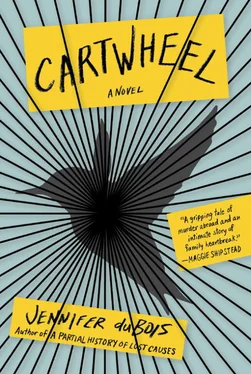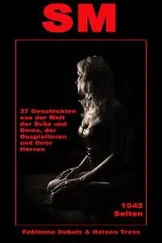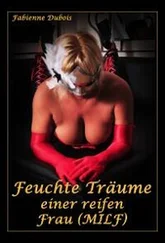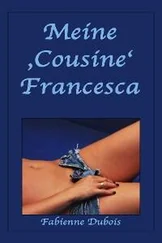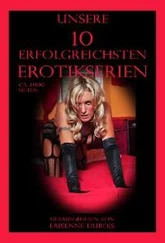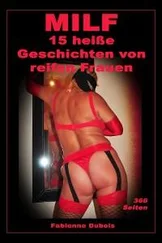“Lily said it was okay on the phone,” said Andrew. “She said it was manageable.” What she’d actually said was “endurable,” but “manageable” seemed to convey the same thought without the troubling connotation. Andrew did not mind his child managing, not really. After all, everyone had to manage.
“Dad.” Anna was shaking her head, looking amazed at Andrew’s stupidity. Her lemon was a little yellow buoy in her beer. “Don’t you know that she’ll say anything?”
They left the café, and Andrew, not ready to return to the hotel, cajoled Anna into going to the modern art museum, where they walked with joyless thoroughness—Anna squinting gravely at the art, Andrew squinting gravely at Anna. He couldn’t understand any of the art. He was too old for all of this; everything challenging was for the young. He sat down on a bench in the middle of the room. He could see the bobbing of Anna’s scapula through her T-shirt when she adjusted her purse; running had made her wiry in a feral cat kind of way. What, he wondered, would this moment come to mean to Anna? Maybe it would become merely one episode in her crazy sister’s crazy life—something to talk about in bars, on dates, or to tell Lily’s wide-eyed, ruddy-haired children one day (“Your mother,” she might say, “was wild ”). Maybe this hour at the modern art museum would be merely one of the narrative’s many surreal asterisks, something decorative that did not appear in every single telling. Or maybe, Andrew thought, this moment would become something else. Maybe Anna would remember it as the very last second that they were still trying to pretend that their whole lives hadn’t gone fully to shit. Maybe she would talk about it in therapy one day—recalling how they’d gone through the sad little self-conscious motions of enjoying the city, as though they were on fucking vacation, and how this was the exact kind of pathological WASP repression that had motored them all through everything, always. Which story were they in right now? Andrew was not sure he wanted to know.
On the taxi ride back to the hotel, Andrew and Anna gazed out separate windows and did not speak. Every few blocks, they passed graffiti in support of Cristina Fernández—newly beloved in the wake of her husband’s death, newly forgiven for raising the taxes on soybeans—and Andrew experienced a minor stab of satisfaction. Encountering something in the world that confirmed what he’d learned of it always gave him a nice solid sense of existing in an actual universe—a reassuring feeling, and one that had been slipping away from him, faster and faster, in recent years. Even before Lily’s arrest, Andrew had felt untethered—like his life had come undone in big sloppy pieces, and nothing had held together long enough to really count. Sometimes it seemed to Andrew that the meaning of his existence had been like a rare gas in a bottle he’d mistakenly uncorked—it was still out there somewhere, presumably, but was now so diffuse as to be undetectable.
Andrew had not slept with anyone since Maureen. He rarely put it in a sentence like that, but there it was. Of course, there had been chances—graduate students: ambitious and/or working out father issues and/or bored and drunk—but he had never taken any of them. The closest call had been an ABD named Karen, who had sleek hair and a creamy avian face and glasses that offset her unruffled beauty in a way that made her look like a porn star playing a librarian—there was no way, there was just no way , that those things actually had corrective lenses in them. Her area was Central Asian republics, and she’d spent an entire summer in Almaty trying to quiz Kazakhs on their feelings, their actual feelings, about Nursultan Nazarbayev. And there’d been one night when she and Andrew had had too much wine and too much high-spirited talk about whether the revolution in Egypt was best compared to the Eastern bloc countries in 1989 or to Iran in 1979 or to Iran in 2009, which had gotten them onto the CIA’s overthrow of Mossadegh in 1953, and this had led them into dark cynical snorting about U.S. involvement in Afghanistan in the ’80s, and then the assassination of Ahmed Shah Massoud two days before September 11th, and then they’d gotten onto rogue intelligence services generally, and conspiracy theories they’d never articulate in the classroom—he spoke of the ISI and Benazir Bhutto, she spoke of the FSB and Lech Kaczyński’s death in that weird plane crash, which, Andrew had to admit, was admirably, almost sexily, audacious. And maybe there was a moment when he’d looked at her mouth—not something you usually do, he realized, unless you’ve got some ideas—but then he’d backed away, and scratched his neck, and went off to get some cheese cut into cubes which, as Karen pointed out, was not really the best way to maximize the surface area of cheese.
Andrew did not know what Karen had wanted from him. There was nothing he could really do for her, he didn’t think, besides write her the glowing recommendation she was already going to get. But there must be something—some power he had that he hadn’t yet unpacked—because there was no way she’d be talking to him if it weren’t strategic. She was a student of Kissinger, after all, a believer in realpolitik. And though there might be permanent interests, there were no permanent allies.
In the taxi, Anna was still staring out the window. “Hey,” said Andrew. He pulled on her ponytail and she shook it away from him. “What do you think of the city?”
“I don’t like it,” said Anna, still looking out the window. Outside, the midafternoon light was coming down in great golden bars, like some kind of ancient currency.
“Do you think you’d like it here if this weren’t happening?” said Andrew.
“I don’t know,” said Anna. There was a long pause, and then she said, “No.”
On Tuesday, Andrew left Anna at the hotel and went to Tribunales to meet with the lawyers. There were only two of them—Franco Ojeda and Leo Velazquez—but Andrew couldn’t help but think of them as a phalanx; they were mercenaries, it seemed to him, come to fight for pay. The conference room where Andrew met them was wood paneled and high ceilinged; it reminded Andrew of 1987, a terrible year. Ojeda was very fat and Velazquez was very bald; the overhead light caught his pate in a complicated, adamantine shine. Ojeda offered water, which Andrew declined, and Velazquez pulled down the blinds, which Andrew did not understand. And then, with the help of audiovisual supplements, the lawyers laid out the criminal case against Andrew’s oldest living daughter.
“First,” said Ojeda. His English was only very lightly accented; Andrew cringed at how much this surprised him. “The emails.”
The emails—which the lawyers had helpfully printed out, color coded by date and arranged in a binder—had emerged almost immediately after Lily’s arrest; Andrew could only assume Lily had accidentally left herself logged in on one of the school computers, which was the kind of thing she would do. Andrew had read them over and over already, and they never sounded any less damning; this time, he closed one eye and half-skimmed, not wanting to look at them straight. Lily really could sound awful if you didn’t know her.
“Second,” said Velazquez, opening a new binder. “The love triangle.”
The lawyers had produced pictures of all three of them, somehow—Andrew recognized Lily’s picture from her Facebook page—and with their images all lined up like that, Andrew saw something important that the lawyers were not saying. Lily’s looks did not help. She was pretty, but it was a sloppy sort of prettiness, suggesting carelessness, sensuality, unearned privilege. Her breasts were, to her eternal chagrin, her mother’s. “I have the breasts of a medieval peasant!” she’d shouted as a teenager once. Andrew had been waiting in the foyer to pick the girls up for the weekend; he’d gazed at the ceiling and pretended not to hear. “What the hell do I need them for?”
Читать дальше
